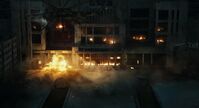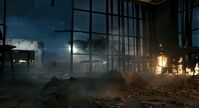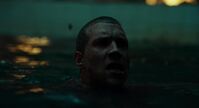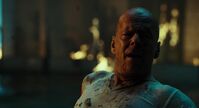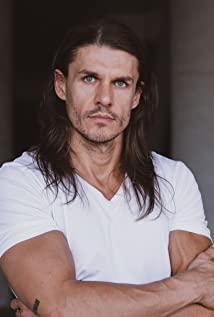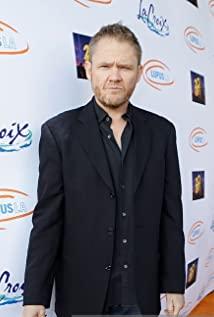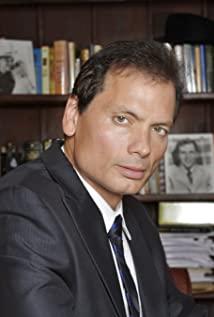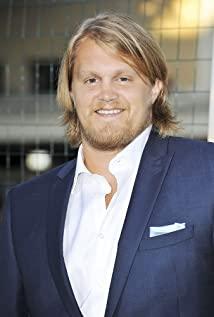To a large extent, Bruce Willis and the "Die Hard" series successfully used this principle. A long time ago, people in the industry discovered that Willis was very narrow as an actor. In the past 30 years, although Willis has become one of the most famous movie stars in the world, he can basically only play one role: himself. For Willis, this is both unfortunate news and lucky news. Unfortunately, this means that he often breaks the pot when he leaves his area of expertise. Fortunately, fans all over the world like to watch Willis play himself.
After Willis gained a foothold on the small screen, "Die Hard" tailored for him can be described as fully discovering all the characteristics of Willis. The role of Willis is the same as himself. He is not the most handsome but charming enough. He is not a humorist but very funny. He has many shortcomings but is generally a good person. He does not have superhuman ability but is enough to turn the tide at critical moments. These factors, coupled with Willist’s (or unique) sneer, made him a hero that many people find approachable and full of affinity.
Except for the undead Willis, the basic structure of Die Hard can basically be summarized as a positive supporting role and a very dazzling villain. Together with Willis, these three people basically formed a golden combination. The fancier is basically Watson next to Holmes, who is mainly responsible for making Willis funny and providing the necessary promotion for the plot. In the first and second episodes, it is played by the protagonist’s wife, and the third and fourth episodes are respectively played by Samuel. Played by Jackson and Justin Long. In order for the bad guys to have enough challenges for Willis, they tend to be full of style and be performed by powerful actors.
Since Willis is untouchable, the fans and the bad guys actually determine the height of the film. For example, the two characters in the third part I think are the best-looking are Jackson and Jeremy Irons, and I In the second episode, the two characters that I don't like are Willis's infamous wife and the small character William Arthurdon.
Once there is a golden combination, the remaining work of Die Hard is actually quite conventional: provide a plot that at least makes sense and does not violate the logic of the movie (of course, if there is a so-called social factor in AOScott in The New York Times) Among them, the film can be upgraded to classic in the eyes of film critics), some joking lines, more exciting actions, and finally yippee ki-yay, a qualified action blockbuster with a global box office of 400 million US dollars has been released.
Unfortunately, Die Hard 5 fails precisely in each of the above. Although Willis is still unkillable this time, he is no longer a cynical ordinary New York policeman. He has become bloated, expressionless, and completely insensitive to human societies (Who would have heard that his son would be sentenced to death in Russia? Shi lightly said "Oh"?) The anger blames the old man. The other two people of the golden combination no longer exist. In the whole film, I don't know who the bad guy is, and after knowing it, I feel that the bad guy is extremely mentally retarded, and the son who is the supporting role can only be angry and show off muscles.
As for the plot...If the screenwriter of this film lived in the 16th century Britain, he would have been dragged out by the audience and hanged. The lines are also extremely simple: copy and paste, let Willis keep repeating: "I'm on vacation!"
All in all, for fans of the "Die Hard" series, it is natural to look at Willis, but the difference in the level of the film is really surprising. Scott said that the poor quality of the film is related to globalization: if the audience will contribute 400 million to the film no matter what, why should the producers take the film seriously?
View more about A Good Day to Die Hard reviews



